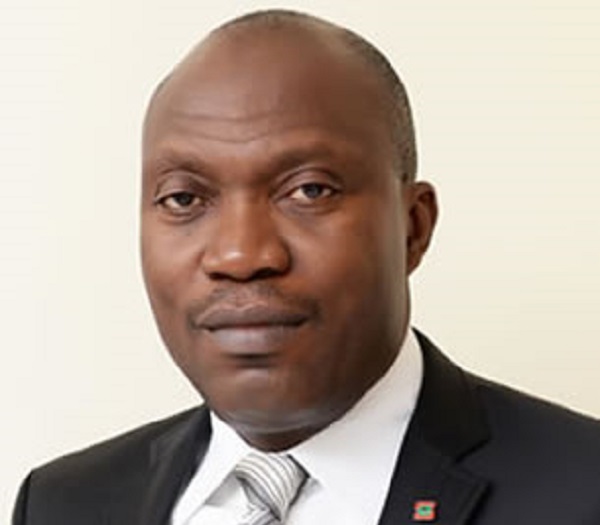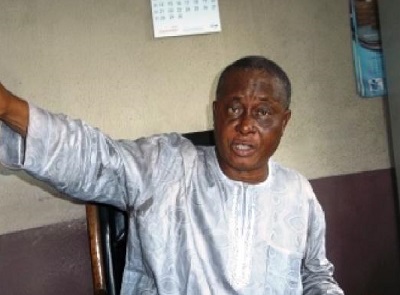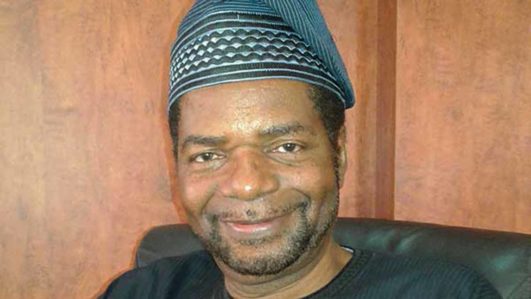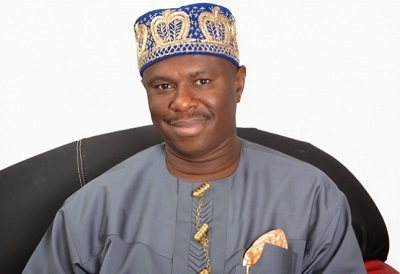Chamber Of Shipping Campaigns For Disbursement Of CVFF
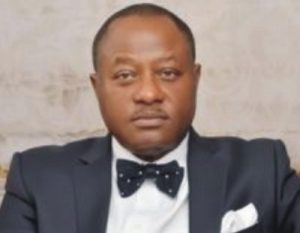
The Nigerian Chamber of Shipping recently organized an investiture for the newly elected executives and governing council members. MMS Plus was there to bring you the highpoints as the new President, Mr. Andy Isichei speaks on the headway for the Chamber under his leadership as well as several other pertinent maritime issues.
Enjoy it:
New Direction
We would channel our energy towards ensuring collaboration and synergy with government agencies, the legislature and all stakeholders that have interest in shipping and the development of the Nigerian maritime industry. These bridges would provide seamless working relationship, unity of purpose, create appropriate opportunities that the Chamber can leverage on to facilitate growth, proficiency and profitability for the industry and the nation’s economy.
We are currently working on collaborative programmes with some internationally acknowledged training institutions to provided globally acceptable certificate courses. We would rejig our signature course, “the ABC of Shipping” by improving its content to provide a more advanced model to facilitate professional capacity development opportunities for middle and higher level manpower in the maritime industry.
We are already collaborating with the Niger Delta University in Bayelsa State to provide for professional Graduate Diploma Certificate programmes in Transport and Oil and Gas Logistics. This would be sustained and improved upon in all ramifications.
Seafaring
We would work with the relevant government agencies to stem the tide of retrogression with regards to the lack of seatime training which has resulted to the dearth of Nigerian seafarers. Most of our seafarers are jobless because they haven’t gotten the opportunity of seatime experience.
We would work with reputable organizations abroad to provide them opportunities for seatime experience so that they can also enhance the nation’s revenue.
Ship Financing
The Chamber would increase advocacy to ensure the disbursement of the Cabotage Vessel Financing Fund (CVFF). The Chamber would also explore all available funding opportunities for the acquisition of ships within and outside the country.
Compliance and Implementation Issues
There are several compliance and policies that haven’t been domesticated or fully implemented by Nigeria. Also, sectoral policies like Cabotage and Local Content haven’t been fully implemented. Most of the vessels lifting the nation’s crude oil as well as the tank farms in Nigeria are mainly foreign owned. According to recent statistics by the Executive Secretary of the Nigerian Content Development and Monitoring Board (NCDMB), Engr. Simbi Wabote, local content participation is not encouraging and the Nigerian Chamber of Shipping would begin a strong advocacy to correct these abnormalities. The problem in Nigeria has never been the lack of ideas or good policies, but the issue has always been in the implementation.
Cabotage
Cabotage is a major employment generating opportunity. Look at the Jones Act which was copied as Cabotage Act in Nigeria, it works in America because of the high level of implementation. Ships are built in America, owned by Americans and operated by Americans. This not only guarantees the security of the nation but also provides massive employment opportunities.
The major problems facing the Nigerian maritime industry is that most of the businesses are handled by foreign bodies. Over 80% of the tank farms in Nigeria are owned by foreigners. The problem in the maritime sector is the low utilization of the local content. Foreign expatriates come into Nigeria and dominate with any succession plan to transfer their knowledge to Nigerians.
Look at the Angolan model of the Local Content Act, you can’t own a company in the oil and gas or any other port related sector if you are not an Angolan. The expatriates who can’t transfer their skill to indigenes are also refused visa renewal after two years. These are very strict steps that Nigeria can take to grow the maritime sector.
The Jones Act of the USA which was replicated in Nigeria as the Cabotage Act, demands that ships must be built in America, owned by Americans and operated by Americans. This has been implemented to the latter and it created massive employment for the citizens. In Nigeria, if we can’t build ships now, we must put the right policies in place. Things have to be done orderly; if it would require a revolution then there must be a revolution. Things must change for the benefit of Nigerians.
We would admonish the Nigerian Content Development and Monitoring Board (NCDMB), Nigerian Maritime Administration and Safety Agency (NIMASA) and Nigerian National Petroleum Corporation to borrow a leaf from the Angolan model of Local Content.
Piracy
As a result of piracy Nigeria pays heavy insurance premium for vessels that come into the nation and Chamber would admonish NIMASA to work in synergy with other government agencies to ensure the safety of Nigerian waters.
Workshops/ Seminars
The Chamber would also lead advocacy through workshops and seminars on issues affecting the nation’s economy. Issues like the National Transport Commission bill which has entered the second reading at the National Assembly, National Single Window, etc.
On Succession Plan
My tenure is just two years and I intend to leave a clear roadmap for my successor. The Chamber isn’t a political party that’s devoid of a succession pattern; we have a roadmap that is all-inclusive. You can see that we have a smooth succession plan. Whoever would emerge as the next President would have to be a member of the governing council.
My hope is that by the end of my tenure the problems of seatime which has limited Nigerian seafarers who have been addressed and other areas such as ship financing and other areas should have witnessed significant developments.
The transport sector is fortunate to have a Minister as engaging and passionate as Hon. Rotimi Amaechi. We are going to maximize this opportunity to engage, talk, push and pull in order to make the nation’s maritime sector better.




